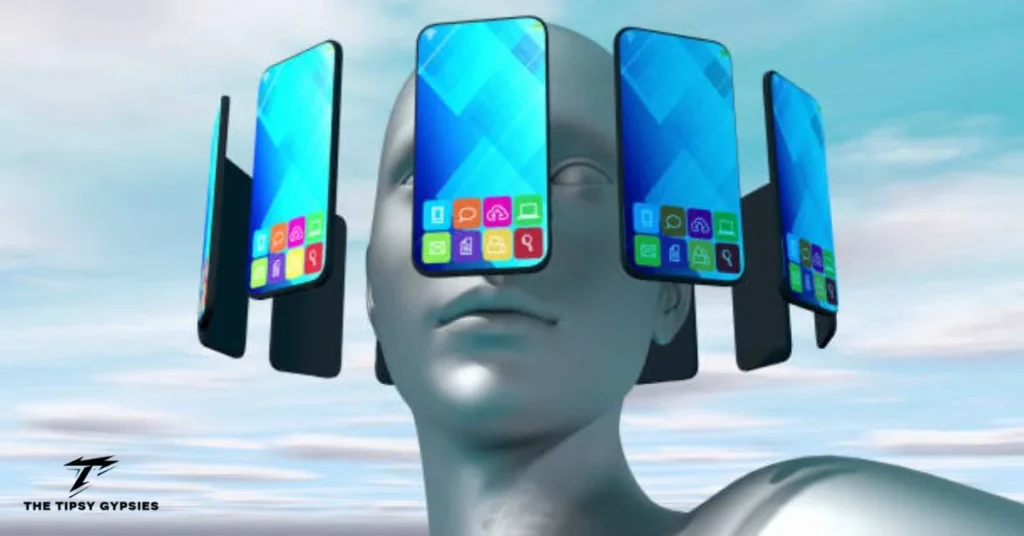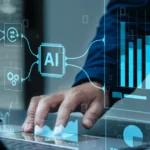Introduction to the current state of technology and smartphones
The smartphone era has transformed our lives in ways we could never have imagined. From instant communication to limitless information at our fingertips, mobile technology is woven into the fabric of daily existence. However, as we stand on the brink of a new technological frontier, it’s clear that tech giants envision a future beyond smartphones.
As companies like Apple, Google, and Microsoft shift their focus towards groundbreaking innovations, we’re beginning to glimpse what might replace these pocket-sized powerhouses. The landscape of technology is evolving rapidly. The next five years promise not just incremental upgrades but a seismic shift in how we interact with the world around us.
Curious about what this means for you? Let’s explore the bold visions being crafted by industry leaders and how emerging technologies will shape society and businesses alike.
The vision of tech giants envision future beyond smartphones
tech giants envision future beyond smartphones are casting their gaze far beyond the smartphone era. They envision a world where technology seamlessly integrates into everyday life, enhancing human experiences in profound ways.
Imagine waking up to a home that adjusts lighting and temperature based on your personal preferences. Smart devices will communicate effortlessly, creating an environment tailored just for you.
Companies like Apple and Google are investing heavily in augmented reality (AR) and virtual reality (VR). Their goal? To craft engaging environments that transform the way we connect with digital content.
Meanwhile, advancements in AI will drive personalized services—anticipating needs before they arise. This shift could transform industries from healthcare to entertainment, making them more efficient and user-centric.
As these tech giants innovate, they’re not merely focusing on new gadgets but rather reimagining how technology can enrich our lives. The future promises an interconnected landscape where boundaries blur between physical and digital realms.
Advancements in virtual and augmented reality
Virtual and augmented reality are transforming how we interact with the digital world. These technologies create immersive experiences that blur the lines between reality and virtual environments.
Imagine stepping into a meeting room where your colleagues appear as holograms, no matter their physical location. This is becoming increasingly feasible thanks to advancements in VR and AR technology.
Gaming has already seen massive strides, offering players unparalleled levels of engagement. But beyond entertainment, education is also benefiting tremendously. Students can explore ancient civilizations or conduct complex science experiments without leaving their classrooms.
Businesses are starting to use AR for training programs too. Employees can learn hands-on skills through simulations that feel incredibly real.
As these innovations evolve, they promise to enhance our understanding of both familiar and uncharted territories in ways we could only dream about just a few years ago.
The rise of artificial intelligence and its impact on daily life
Artificial intelligence is seamlessly integrating into our daily routines. From smart assistants managing schedules to algorithms curating personalized content, AI is becoming an invisible yet powerful presence.
Imagine waking up to a home that adjusts the temperature based on your comfort preferences or a fridge that tracks expiration dates and suggests recipes. This isn’t just futuristic thinking; it’s happening now.
In workplaces, AI analyzes data trends faster than any human could. It enhances decision-making processes and automates mundane tasks, allowing employees to focus on creativity and strategy.
Moreover, in education, adaptive learning technologies cater to individual student needs. They ensure personalized pathways for mastering new skills.
As AI continues its evolution, the boundaries of what’s possible are expanding rapidly. Its impact touches every aspect of life—making things simpler while sparking conversations about ethical implications and privacy concerns.
Internet of Things (IoT) and its potential in the future
The Internet of Things (IoT) is rapidly transforming how we interact with our environment. Everyday objects are becoming smart, interconnected devices that communicate seamlessly.
Imagine a world where your refrigerator alerts you when groceries are running low or your thermostat adjusts based on your daily routine. This integration enhances convenience and efficiency in our lives.
In the future, IoT will expand beyond homes to entire cities. Smart traffic systems could optimize flow, reducing congestion and pollution. Health monitoring devices might revolutionize personal care by providing real-time data to medical professionals.
As industries adopt IoT technologies, businesses will gain insights into operations like never before. Predictive maintenance can minimize downtime while enhancing productivity.
With endless possibilities ahead, the potential for IoT extends far beyond what we currently experience. It promises not just smarter living but a more connected society as well.
How these changes will affect society and businesses
The shift away from smartphones will reshape how we interact and conduct business. Virtual and augmented reality tools could redefine communication, making remote collaborations feel as immersive as face-to-face meetings.
Businesses might adopt these technologies to create engaging customer experiences, blurring the lines between physical and digital worlds. Shopping could transform into a personalized journey where consumers try products virtually before buying.
On a societal level, this evolution may lead to new job sectors focused on developing virtual environments or managing AI systems. Traditional roles could diminish or evolve entirely, demanding new skills from the workforce.
Privacy concerns will escalate in tandem with these advancements. As our lives become more interconnected through IoT devices, safeguarding personal data becomes critical for both individuals and organizations alike. The challenge lies in balancing innovation with ethical responsibility while ensuring that technology serves everyone fairly.
Challenges and concerns for this shift in technology
The shift away from smartphones raises significant challenges. Privacy remains a top concern. As devices become more interconnected, safeguarding personal data becomes increasingly complex.
Additionally, the digital divide could widen further. Not everyone has equal access to new technologies like augmented reality or AI-driven tools. This disparity may leave some communities behind.
There’s also the issue of job displacement. Automation and AI threaten traditional roles across various sectors. Workers will need reskilling to adapt to this evolving landscape.
Environmental impact cannot be overlooked either. The production and disposal of advanced tech can strain resources and contribute to waste.
There is a societal challenge in managing screen time and dependence on technology for daily interactions. Balancing innovation with human connection will be crucial as we navigate this future transition.
Conclusion and predictions for the next 5 years
As we look ahead to the next five years, it’s clear that tech giants envision a future beyond smartphones. The rapid advancements in virtual and augmented reality promise immersive experiences that could redefine how we interact with digital content. Imagine attending meetings in virtual environments or shopping for clothes as if you were trying them on in person.
Artificial intelligence is set to become even more integrated into our daily lives. Smart assistants will evolve, allowing us greater control over our homes and workspaces. We might see AI stepping up, not just as a tool but as an active participant in decision-making processes across various sectors.
The Internet of Things (IoT) will continue to expand its reach, connecting devices and systems like never before. This interconnectedness has the potential to streamline tasks and improve efficiency at home and within businesses alike.
However, all these innovations come with their share of challenges. Privacy concerns are paramount as data becomes increasingly integral to these technologies. Balancing innovation with security is vital for gaining consumer trust.
The next five years hold immense promise and uncertainty alike for technology enthusiasts and businesses worldwide. With new frontiers opening up every day, it’s exciting—and somewhat daunting—to consider what life will be like when smartphone dependence diminishes further than ever before.






